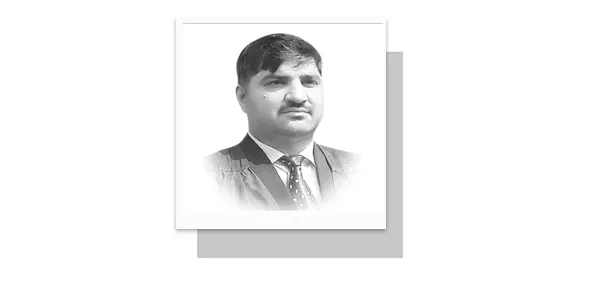THE American War on Terrorism brought drastic transformations in the security culture and environment across various regions of the world. The concept of security is complex and often beyond the understanding of an ordinary person. Global security thinkers and engineers remain divided on the US War on Terrorism. One camp of security thinkers considers it a drama, while the pro-US lobby defends it. However, regardless of one’s perspective, it undeniably jolted the social, economic, political and strategic sectors across the globe. The dramatic invasion of Iraq by America, the UK and their allies on the pretext of Weapons of Mass Destruction, later declared as a failure by their respective intelligence agencies, further fuelled debates. Similarly, the invasion and subsequent withdrawal of troops from Afghanistan also stirred controversy.
In the latter case, the people of Pakistan could not escape the effects of the US war against Afghanistan. Particularly, residents of the former Federally Administered Tribal Areas and Khyber Pakhtunkhwa bore the brunt, sacrificing lives, education, economic stability (resulting in loss of property and business), experiencing displacement, and enduring psychological trauma.
The armed conflicts of Pakistan security forces with the militant groups in former tribal areas necessitated to launch various military operations like Operation Al-Mizan in South Waziristan (2002-2006), Operation Sher Dil in Bajaur (2008), Operation Rah-e-Haq in Swat (2007-2009), Operation Rah-e-Rast in Swat (2007-2009), Operation Zalzala in South Waziristan (2008), Operation Rah-e-Nijat in South Waziristan (2009) to counter militancy and terrorism. Contrary to all these operations, the military operation Zarb-e-Azb launched in 2014 in former North Waziristan Agency (NWA) against the militants was very rigorous and crucial to wipe out the safe haven of terrorists and militant groups.
Security simply means the absence of fear, tangible and intangible, from both internal and external threats. Broadly speaking, there are two major security paradigms, Traditional and Non-Traditional, in security studies. Traditional security corresponds to military security. Unlike this, the 1994 UNDP report gave the concept of human security encompasses environmental security, health security, economic security, social security and political security. Later on, British scholar Barry Buzan, in “People, States and Fear”, gave the sectoral concept of security and explained five sectors of security, military security, economic security, political security, societal security and environmental security; and declared these security sectors as inseparable.
For all kinds of securities, a peaceful environment is pre-requisite. Security in all its manifestations reflects the vision of a leader. Such vision has been witnessed in the leadership of Lt Gen Sardar Azhar Hayat, Corps Commander Peshawar. The military security has briefly been highlighted here in the shape of various military operations. However, there is also need to shed light on the rest of sectors of security. In social sector, the various educations institutions for male and female have established. In various parts of KP, Cadet Colleges have been established. Special emphasis on girls’ education has been given. The Concept of “Ilam Da Tolo Dapara’, means Education for All was introduced to bring all children in the ambit of education without any discrimination.
Efforts resulted in enrolling approximately 50,000 children in schools, while identifying and addressing issues like ghost schools and teachers in former tribal areas. Initiatives such as periodic seminars and interactive sessions have bridged the gap between the public and security forces. Healthcare facilities, including hospitals, mobile health units, and basic health units, have been established to ensure health security. Additionally, infrastructure development projects like restoring roads and railway lines are underway, promising economic growth, especially in tourism. Furthermore, 11 Corps provided crucial support to ensure a peaceful election process in February 2024, fulfilling their constitutional obligations.
For a smooth transition of political power to elected representatives of the people, 11 Corps Officers and Jawans extended all-out assistance to civil administration and Police. The General Officers Commanding of 7th Division like former Major Gen Shakir Ullah Khattat, former Maj Gen Naeem Akhtar and incumbent Maj Gen Anjum Riaz and several dynamic Brigadiers like Brig Usman, Brig Rizwan and Brig Mir Baz under the charismatic and visionary leadership of Gen Azhar Hayat have tried their best to restore peace and to bring happiness on faces of their countrymen. Besides this, Brig Sabir Rehman also demonstrated his professional capabilities in restoration of peace in North Waziristan Agency. In addition, the professional capabilities of Brig Sajid of 102 Brigade and his team are unmatchable in restoration of peace in Peshawar.
Keeping in view the global and regional strategic dynamics, the Federal Government must extend unconditional support to both KP Provincial Government and 11 Corps so as to enable both to redress the decades’ sufferings of the people of KP. It is also worth mentioning that Lt Gen Azhar Hayat’s paradigmatic security shift needs to be continued in the best interests of the people of this province and Pakistan.
—The writer is Chairman, Department of Political Science, Islamia College, Peshawar
Email: [email protected]










